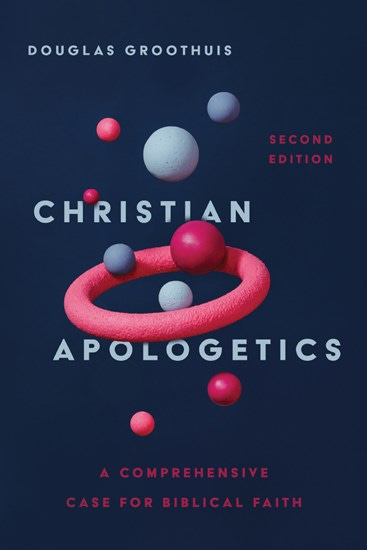In this month’s Roundtable discussion, our team is answering the question they’re asked the most regarding the Christian worldview or apologetics. In part 1, Paul Copan and Melissa Cain Travis shared their answers, and below Paul M. Gould and David Baggett present theirs.
Paul M. Gould
What is a question people often ask about faith? There certainly are the usual suspects: questions about evil and suffering, Jesus and the resurrection, God’s existence and doubt. Upon reflection, however, I think the most common question people ask is rarely asked explicitly. Rather, the question beneath all these questions is this: is there a true and satisfying story? Is there a story that understands me? Is there a story in which I can find my meaning, purpose, and identity? That, I believe, is the question beneath all the questions people often ask in apologetics. This makes sense. Many have noted that humans are narratival creatures. We long for an identity and a place to stand—and that identity and place are found as we find ourselves within a story, a story in which we are the hero. There are at least two important roles that stories play in our lives.
First, stories reveal our identity. Hannah Arendt has pointed out that “the moment we want to say who somebody is, our very vocabulary leads us astray into saying what he is; we get entangled in a description of qualities he necessarily shares with others like him; we begin to describe a type of ‘character’ in the old meaning of the word, with the result that his uniqueness escapes us.”[1] She goes on to say that the only way to escape this is through story: “Who somebody is or was we can know only by knowing the story of which he is himself the hero—his biography, in other words; everything else we know of him, including the work he may have left behind, tell us only what he is or was.”[2] Or as James K. A. Smith puts it, “our longing for an identity is bound up with finding a story.”[3]
Second, stories guide our actions. In his book After Virtue, Alasdair MacIntyre notes that man is essentially a story-telling animal. He states, “man is in his actions and practice, as well as in his fictions, essentially a story-telling animal.”[4] He goes on to say that “I can only answer the question ‘What am I supposed to do?’ if I can answer the prior question, ‘of what story or stories do I find myself a part?’”
We might ask then, of all the competing stories in culture—materialism, scientism, consumerism, hedonism, and so on—which one is true and satisfying? That is the question beneath all questions. And the great news is that there is a good and true story—the gospel—and in that story Jesus bids us to take our place and find our hope, meaning, and identity in him.
Notes
[1] Hannah Arendt, The Human Condition (New York: Doubleday Anchor, 1958), 181.
[2] Ibid., 286.
[3] James K. A. Smith, On the Road with Saint Augustine (Grand Rapids, MI: Brazos, 2019), 163.
[4] Alasdair MacIntyre, After Virtue, 3rd ed (Notre Dame, IN: University of Notre Dame Press, 2007), 216.
David Baggett
It is hard to say, from my experience, what the most frequently asked question is on these matters, but since I do a lot of work on the moral argument, a recurring question certainly is this one: Isn’t morality just a matter of rules by which to get along? Why is God needed for that? I think this is an eminently understandable question to ask nowadays; it definitely captures much of what many contemporaries mean by morality.
My main response is encouragement to be more attentive to the relevant evidence. From intrinsic human rights to authoritative moral duties, from inherent human value to significant moral freedom, from the possibility of moral knowledge to the rationality of the moral enterprise, from our need for forgiveness to our deep existential moral need for transformation and ultimate perfection, morality is a richly resplendent thing that simply doesn’t lend itself to a simplistic analysis.
Owen Barfield once said there are few deep thinkers anymore because we’re in too much of a hurry—and he said this well over fifty years ago. I sometimes worry it’s worse now in this age of instant communication, mic drops, and sound bites. We need to slow down and pay close attention to the evidence.
C. S. Lewis once gave an analogy to capture three important aspects of morality. He envisioned a fleet of ships traveling along. First, they each need to be seaworthy, so they don’t sink. This captures the dimension of morality that characterizes the acquisition of character and virtue as a strength, which it surely is. In fact, the healthier we are inside, the more effective we will be at our outward pursuits, without burning out or losing heart.
Second, the ships need to navigate in such a way that they don’t bump and crash into one another. This captures the notion that morality conduces to harmonious living among one another. This is largely the point of the aforementioned emphasis on getting along, but merely avoiding conflict is just the start. Seeing others as valuable, as ends in themselves, as worthy of respect and dignity—even those who are broken, vulnerable, and unable to do much by way of reciprocation—these are all vital aspects of the moral life.
All of us intuitively and viscerally grasp their importance, if we are honest, but we need to be attentive to the evidence this phenomenon affords us. Where does such inestimable value come from? What explains our sacred duties and privileges to recognize such resplendent value? In this and ever so many ways morality offers us important clues about the nature of reality, the human condition, and God himself, but only if we pay attention and cultivate ears with which to hear.
Third, the ships on their voyage require a destination, a goal. Likewise, we as human beings are not moving aimlessly; we’re on a journey, and we need the right goal, aim, or end. Our “telos” is our destination or end. Christianity is infused with a profound sense that there is indeed such a thing, a normative goal for us all, a destination for us both individually and collectively. Life isn’t without a point or pattern, even if we can’t always see it clearly; it’s not just “one damned thing after another.” We are here for a reason and for a purpose. Discovering that purpose is central to our fulfillment and flourishing. Settling for emaciated counterfeits and substitutes is the way of stultification.
A life of virtue, character, and integrity, made possible by the operation of God’s grace within us, is ultimately connected in an airtight fashion to our deepest satisfactions. Of course, a paradox is that the trajectory to the deepest joy of which we are capable requires that we aim at something more than merely joy. “Seek ye first the kingdom of God and his righteousness, and all these things shall be added unto you.” This dual insight was shared by a great range of luminaries from the history of the moral argument—from Immanuel Kant to Thomas Reid, from John Locke to Blaise Pascal, from A. E. Taylor to H. P. Owen.
Our profoundest fulfillment comes only from responding with openness to God’s overtures of love and, by his saving and empowering grace, growing more and more able to live the life for which we were created, doing the good works that God prepared beforehand for us to do.
Christian Apologetics
A Comprehensive Case for Biblical Faith
Second Edition
In this comprehensive text, Douglas Groothuis makes a clear and rigorous case for Christian theism. Demonstrating how apologetics must be both rational and winsome, he addresses the most common questions and objections people raise regarding Christianity. After laying a foundation with the biblical basis for apologetics, apologetic method, and a defense of objective truth, he presents key arguments for the reality of God, a case for the credibility of Jesus, and evidence for the resurrection. Groothuis also evaluates alternative views and responds to challenges such as religious pluralism and the problem of evil.
The second edition of this landmark work has been updated throughout to address current issues and sources. It includes new chapters on topics such as doubt and the hiddenness of God, the atonement, the church, and lament as a Christian apologetic. To know God in Christ, Groothuis argues, means that we desire to make Christian truth available to others in the most compelling form possible. Students, ordinary Christians, and seasoned philosophers will all find a wise guide for this endeavor in Christian Apologetics.
Read our recent excerpt from this new edition of Christian Apologetics, “The Christian Worldview and Religious Nonrealism.”
“Douglas Groothuis's Christian Apologetics is a substantive and immensely valuable resource. It not only sets forth an impressive, comprehensive case for the Christian faith, but interwoven throughout are important personal, cultural, and existential considerations and applications embedded in a context of robust engagement with Scripture and theology. The result is a wonderfully multifaceted and holistic treatment of apologetics. A pleasure to recommend!”
— Paul Copan, Pledger Family Chair of Philosophy and Ethics, Palm Beach Atlantic University, and coauthor of The Gospel in the Marketplace of Ideas
Find Christian Apologetics at Amazon, InterVarsity Press, and other major booksellers.
* This is a sponsored post.
Defend the Faith With Vigor and Winsomeness
It’s been an unalloyed joy for the last few years to join the ranks of Chris Reese, Paul Gould, and Paul Copan at The Worldview Bulletin, and lately we were thrilled to add the delightful Melissa Cain Travis to the mix. I count all of these dear people not just as colleagues, but friends and kindred spirits. To be part of the WB has been one of the highlights of my life and career. It is truly less work than a sacred privilege.
If you haven’t already, would you consider joining the fun and this exciting initiative by teaming up with us? Paid subscribers will receive our monthly newsletter, to which each of us contribute. This is in addition to the weekly e-mail, and each month also features a “Roundtable Question” on which we all share our salient thoughts in an effort to better equip folks to fulfill their vocations, tackle challenges to faith, and be prepared to give a reason for the hope within them.
The weekly e-mails and monthly newsletters also contain important news of interest, regular lists of discounts on books and other resources, notices and excerpts of new and forthcoming books, and access to our full archive of articles. In all these ways we are doing what we can to provide thoughtful and engaging material on apologetic, philosophical, and worldview matters that matter. Our earnest hope is for readers to grasp their faith and Christian worldview more deeply and to grow in their ability to articulate and defend it with both rigor and winsomeness.
Would you prayerfully consider joining us in this innovative ministry—both for your benefit and for ours? For about the cost of a latte, your consistent help will support our efforts to make this material publicly available to believers, seekers, and skeptics alike.
Blessings,
Dave Baggett


